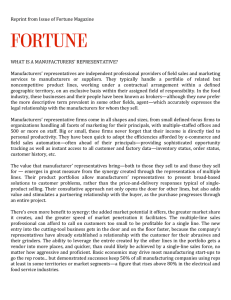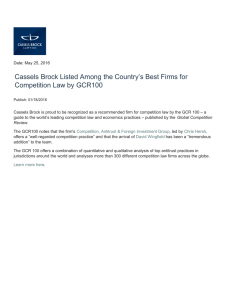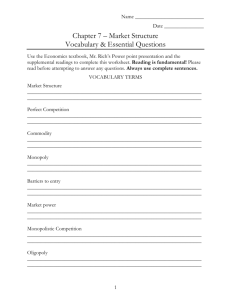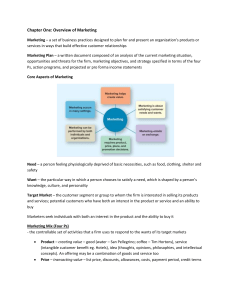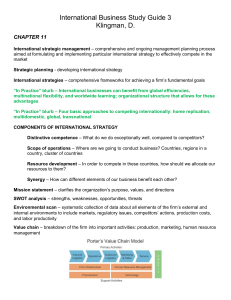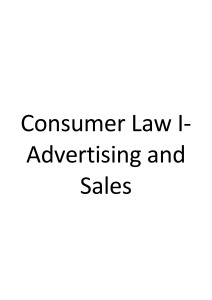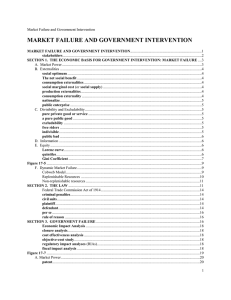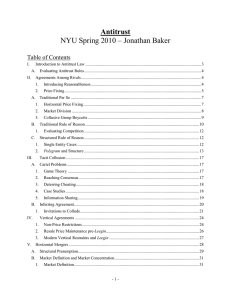Public Policy Issues
advertisement
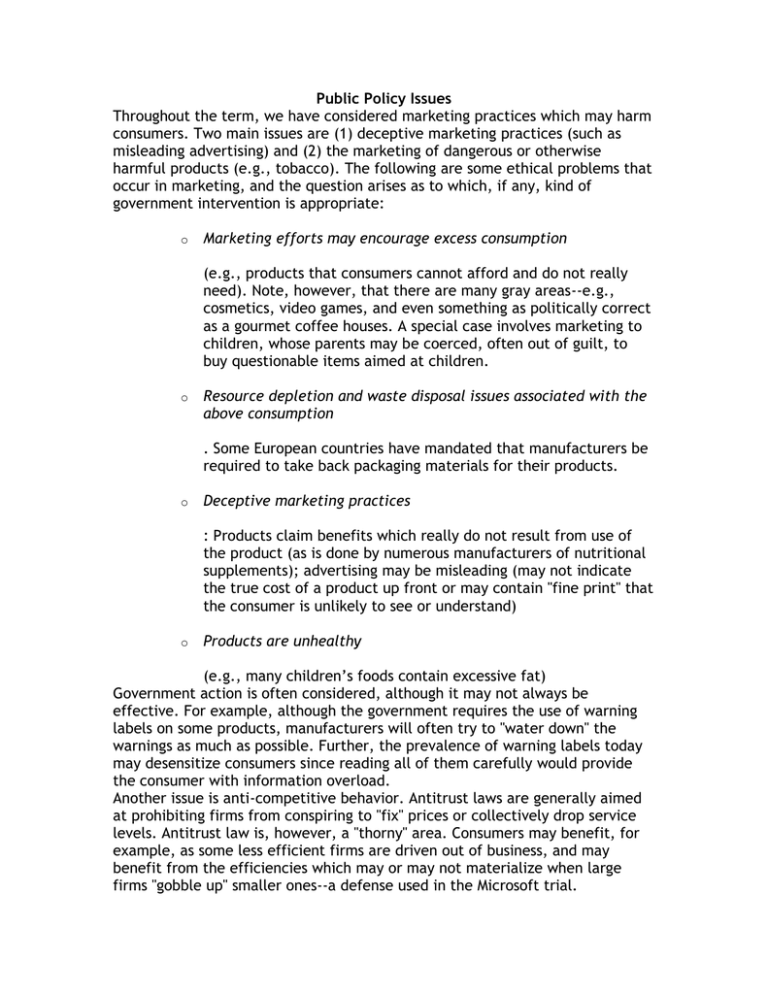
Public Policy Issues Throughout the term, we have considered marketing practices which may harm consumers. Two main issues are (1) deceptive marketing practices (such as misleading advertising) and (2) the marketing of dangerous or otherwise harmful products (e.g., tobacco). The following are some ethical problems that occur in marketing, and the question arises as to which, if any, kind of government intervention is appropriate: o Marketing efforts may encourage excess consumption (e.g., products that consumers cannot afford and do not really need). Note, however, that there are many gray areas--e.g., cosmetics, video games, and even something as politically correct as a gourmet coffee houses. A special case involves marketing to children, whose parents may be coerced, often out of guilt, to buy questionable items aimed at children. o Resource depletion and waste disposal issues associated with the above consumption . Some European countries have mandated that manufacturers be required to take back packaging materials for their products. o Deceptive marketing practices : Products claim benefits which really do not result from use of the product (as is done by numerous manufacturers of nutritional supplements); advertising may be misleading (may not indicate the true cost of a product up front or may contain "fine print" that the consumer is unlikely to see or understand) o Products are unhealthy (e.g., many children’s foods contain excessive fat) Government action is often considered, although it may not always be effective. For example, although the government requires the use of warning labels on some products, manufacturers will often try to "water down" the warnings as much as possible. Further, the prevalence of warning labels today may desensitize consumers since reading all of them carefully would provide the consumer with information overload. Another issue is anti-competitive behavior. Antitrust laws are generally aimed at prohibiting firms from conspiring to "fix" prices or collectively drop service levels. Antitrust law is, however, a "thorny" area. Consumers may benefit, for example, as some less efficient firms are driven out of business, and may benefit from the efficiencies which may or may not materialize when large firms "gobble up" smaller ones--a defense used in the Microsoft trial. Reference: Hawkins, Del I., Roger J. Best, and Kenneth A. Coney (1998), Consumer Behavior: Building Marketing Strategy, 7th ed., Boston: McGraw Hill. International Marketing Channels and Distribution More teaching materials Lars Perner, Ph.D. Assistant Professor of Marketing San Diego State University Imperial Valley Campus 720 Heber Ave. Calexico, CA 92231 lperner@mail.sdsu.edu http://www.LarsPerner.com "Birth is nature's way. Adoption is God's way!" (Source unknown)
